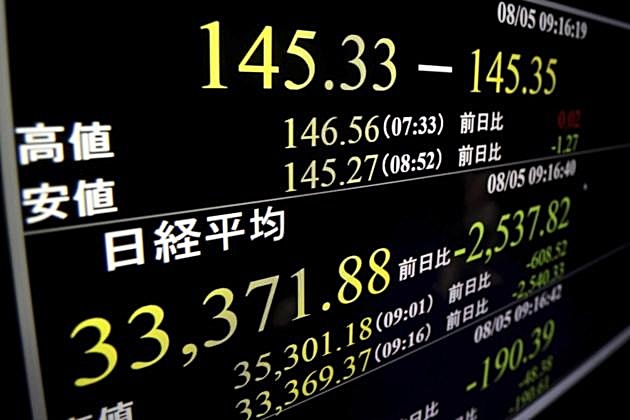The Nikkei 225 share index in Japan experienced a massive decline of over 12 percent on Monday, as investors expressed concerns regarding the deteriorating state of the US economy. In response, a wide range of shares were dumped.
With a staggering drop of 4,451.28 points, the Nikkei index plummeted to 31,458.42. This comes after a 5.8 percent decrease on Friday, making it the worst two-day decline in the history of the index, with a total decline of 18.2 percent over the past two trading sessions.
During the lowest point of the trading day, the Nikkei experienced a terrifying 13.4 percent loss. However, the most significant single-day decline happened during the infamous Black Monday on October 1987 when the index plunged by 3,836 points, equivalent to 14.9 percent. Other notable drops include an 11.4 percent decrease during the global financial crisis in October 2008 and a 10.6 percent fall in the aftermath of the devastating earthquakes and nuclear meltdowns in northeastern Japan in March 2011.
The decrease in share prices in Tokyo can be attributed to the recent increase in the Bank of Japan’s benchmark interest rate, which has left the benchmark approximately 3.8 percent below its level a year ago.
This wave of selling has impacted a wide range of companies operating in various sectors. Noteworthy casualties of this decline include Toyota Motor Corp. and Honda Motor Co., witnessing drops of 11 percent and 13.4 percent, respectively. Furthermore, computer chip manufacturer Tokyo Electron witnessed a drastic dive of 15.8 percent, while Mitsubishi UFJ Financial Group suffered a significant decline of 18.4 percent.
Discover more from Tension News
Subscribe to get the latest posts sent to your email.

